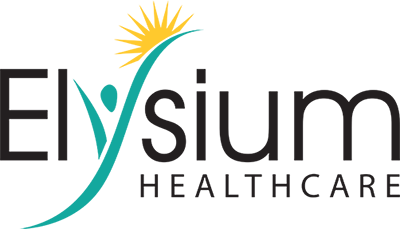
Once an addict checks into rehab, a psychiatrist and a team of recovery experts will generally assess the condition of the addict and evaluate the most appropriate course of action to follow.
Part of the treatment program will include a variety of types of therapy for addiction, such as:
Cognitive Behavioral Therapy (CBT)
Cognitive Behavioral Therapy (CBT) is a widely popular form of psychotherapy in rehab. Extensive scientific research has demonstrated its remarkable effectiveness in addressing addiction, anxiety, and depression.
CBT is rooted in the belief that our thoughts, emotions, and actions work in harmony to shape our overall well-being.
To unlearn negative behaviors, CBT therapists use a variety of methods, such as breathing exercises.
Benefits of Cognitive Behavioral Therapy (CBT):
- Helps identify and change negative thought patterns and behaviors related to substance abuse.
- Teaches coping skills to manage cravings and triggers effectively.
- Focuses on addressing underlying issues that contribute to substance abuse.
- Encourages active participation and self-reflection to promote long-term recovery.
Group Therapy
Group therapy entails the comprehensive examination of the root causes of a patient’s addiction within a secure and nurturing setting. Participants can anticipate the support of fellow individuals grappling with addiction, with sessions generally facilitated by one or two group therapists.
This mode of therapy proves effective as it empowers addicts to openly engage in discussions about their struggles and experiences, fostering an environment of mutual learning and growth.
A typical session usually includes six to twelve recovering addicts.
Benefits of Group Therapy:
- Provides a supportive and non-judgmental environment for individuals with similar struggles.
- Offers a sense of belonging and reduces feelings of isolation.
- Facilitates peer support and accountability.
- Allows for the exchange of experiences, insights, and coping strategies.
Family Therapy
In family therapy, triggers, traumas, and challenges are overcome by families together. The philosophy behind this therapy is that addiction affects every member of the family.
By attending family therapy, the entire family can heal together.
It has been shown that addicts who receive this type of therapy remain sober longer than those who do not.
Benefits of Family Therapy:
- Involves the whole family in the recovery process, promoting understanding and empathy.
- Addresses family dynamics and communication patterns that contribute to substance abuse.
- Strengthens family bonds and improves relationships.
- Helps family members learn how to support their loved one’s recovery effectively.
Medication-Assisted Treatment
This particular treatment is actually one of the most common types of therapy for addiction, mainly because it is often used alongside detox.
Patients receiving medicine-assisted treatment are cleansed of toxins and allowed to begin healing by detoxifying their bodies.
In this treatment approach, low-risk replacement drugs are administered to alleviate cravings and mitigate withdrawal symptoms.
Benefits of Medication-Assisted Treatment:
- Uses FDA-approved medications to reduce withdrawal symptoms and cravings.
- Helps normalize brain chemistry and stabilize individuals during recovery.
- Increases treatment retention rates and reduces the risk of relapse.
- Provides a comprehensive approach that combines medication with counseling and behavioral therapies.
Holistic Therapy
Holistic addiction treatment involves addressing the physical, mental, emotional, social, and spiritual aspects of a person’s life.
Rather than merely treating addiction’s symptoms, holistic treatment addresses its underlying causes.
The following are examples of holistic types of drug treatment in rehab:
- Acupuncture
- Yoga
- Equine therapy
- Mindfulness and Meditation
- Nutrition
- Massages
Benefits of Holistic Therapy:
- Takes a holistic approach, addressing physical, emotional, and spiritual aspects of recovery.
- Encourages self-care practices, such as mindfulness and meditation.
- Offers alternative types of therapy for addiction like yoga, acupuncture, and massage to promote overall well-being.
- Supports individuals in developing healthy lifestyle habits beyond substance abuse treatment.
EMDR Therapy
EMDR, short for Eye Movement Desensitization and Reprocessing, is a widely utilized treatment approach for individuals grappling with addiction and trauma.
The underlying principle of EMDR revolves around facilitating the brain in processing and reframing traumatic memories in a constructive manner. It involves harnessing emotional recalibration to substitute unpleasant and traumatic experiences with positive ones.
Research indicates that EMDR therapy is effective for treating clients with dual diagnoses
In an EMDR treatment session, clients will collaborate with their therapist to engage in a series of eye movements, guided imagery, and other techniques aimed at reprocessing negative memories.
Benefits of EMDR Therapy:
- Specifically targets and helps process traumatic memories related to substance abuse.
- Reduces the emotional distress and negative beliefs associated with traumatic experiences.
- Facilitates the reprocessing of traumatic memories, leading to symptom reduction.
- Empowers individuals to develop healthier coping mechanisms and beliefs.
Individual Therapy in Addiction Treatment
Individual therapy in addiction allows recovering patients to have one-on-one sessions with a therapist that can help them overcome substance abuse or addiction.
Having individual and bespoke treatment options is critical in ensuring your recovery. If you or someone you love is suffering from addiction or co-occurring disorders then you must seek help immediately.
Elysium Healthcare is a top-rated recovery program that offers mental health and addiction recovery treatment.
Contact us today to find out how we can help your loved ones get the help they need.








No comment yet, add your voice below!